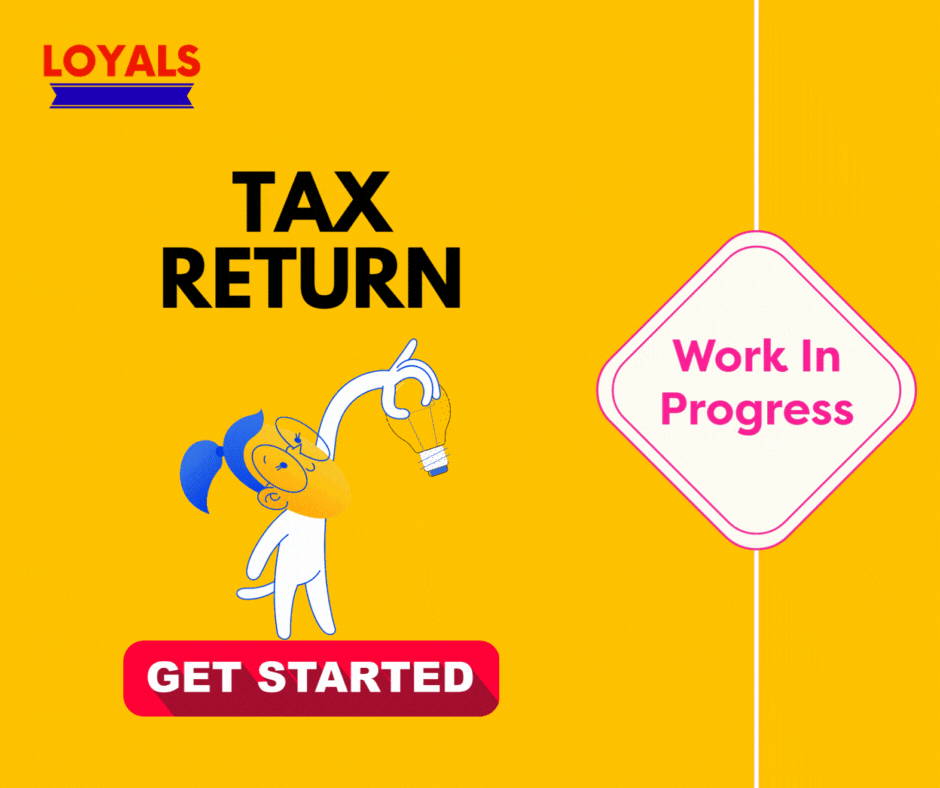Are you a business that imports goods from the EU into the UK? If so, you may be familiar with the administrative burden and cash flow issues that come with paying import VAT upfront.
Luckily, there is a solution - Postponed VAT Accounting (PVA). In this article, we will cover everything you need to know about PVA, including what it is, how it works, and the benefits it can bring to your business. We'll walk you through the steps to apply for PVA, including the documents you'll need and where to find more information. By the end of this article, you'll have a comprehensive understanding of how PVA can help your business streamline its VAT accounting processes, improve its cash flow, and reduce administrative burdens. Get ready to take your business to the next level with Postponed VAT Accounting!
What is VAT?
Value Added Tax (VAT) is a tax that is added to the price of goods and services at each stage of production and distribution. It is a consumption tax that is paid by the final consumer of the product or service. VAT is a major source of revenue for governments around the world, and is used to fund public services such as healthcare, education, and infrastructure.
Why is VAT important?
VAT is important because it allows governments to generate revenue from consumption, rather than just income or wealth. This means that everyone who consumes goods and services contributes to the government's revenue stream, not just those who earn a high income or own a lot of assets. VAT is also important because it is relatively efficient to collect and administer. Since each business in the supply chain is responsible for collecting and remitting VAT, the burden of compliance is distributed across the economy.
What is Postponed VAT Accounting (PVA)?
Postponed VAT Accounting (PVA) is a system that was introduced in the UK in 2021 to help businesses that import goods from the European Union (EU) after Brexit. Under PVA, businesses can defer paying import VAT until their next VAT return, rather than paying it at the point of importation. This is intended to ease the cash flow burden on businesses that are importing goods from the EU, and to reduce the administrative burden of paying import VAT at the border.
How does PVA work?
Under PVA, businesses that are registered for VAT in the UK can opt to defer paying import VAT on goods that are imported from the EU. This means that instead of paying import VAT at the border, they can include the VAT on their VAT return, and pay it at the same time as their other VAT liabilities. This is intended to help businesses that are facing cash flow difficulties, since they do not have to pay the import VAT upfront.
In order to use PVA, businesses must have a valid VAT number, and they must use the Customs Declaration Service (CDS) to submit their import declarations. They must also keep records of their imported goods, including the VAT that is due on those goods. When they submit their VAT return, they include the import VAT on their return, and pay it along with their other VAT liabilities.
One of the advantages of PVA is that it reduces the administrative burden on businesses. Instead of having to pay import VAT at the border, businesses can include the VAT on their VAT return, which simplifies their record-keeping and reduces the risk of errors. PVA also allows businesses to defer payment of import VAT, which can help to improve their cash flow, especially if they are importing a large volume of goods.
PVA is a system that was introduced to help businesses that import goods from the EU after Brexit. It allows businesses to defer payment of import VAT until their next VAT return, which can help to improve their cash flow and reduce the administrative burden of paying import VAT at the border. PVA is available to businesses that are registered for VAT in the UK, and who use the Customs Declaration Service (CDS) to submit their import declarations. While PVA is specifically aimed at businesses that are importing goods from the EU, it may have wider implications for businesses that are involved in international trade, since it demonstrates the potential for new VAT accounting systems to be introduced in response to changing economic conditions.
Which businesses are eligible for PVA?
Postponed VAT Accounting (PVA) is a system that was introduced in the UK in 2021 to help businesses that import goods from the European Union (EU) after Brexit. However, not all businesses are eligible for PVA. In order to use PVA, businesses must meet certain criteria, which are outlined below.
What are the criteria for eligibility?
Firstly, businesses must be registered for VAT in the UK. This means that they must have a valid VAT number, and be registered with HM Revenue and Customs (HMRC) for VAT purposes. If a business is not currently registered for VAT, they will need to register before they can use PVA.
If you need help registering your business with VAT, you can contact LOYALS accountants and they will be happy to assist you.
Secondly, businesses must be importing goods from the EU. PVA is specifically designed to help businesses that are importing goods from the EU after Brexit, so businesses that are importing goods from other countries are not eligible for PVA. However, businesses that are importing goods from countries that have a trade agreement with the UK may be eligible for other types of VAT accounting systems.
Thirdly, businesses must use the Customs Declaration Service (CDS) to submit their import declarations. The CDS is an online system that is used to declare goods that are imported into the UK. It replaced the previous system, which was known as the Customs Handling of Import and Export Freight (CHIEF) system. Businesses that are not using the CDS to submit their import declarations are not eligible for PVA.
Finally, businesses must keep records of the imported goods, including the VAT that is due on those goods. This is important for ensuring that the correct amount of VAT is paid when the business submits its VAT return. Businesses must also ensure that they have accurate records of the value of the goods that are imported, since this will affect the amount of VAT that is due.
It is important to note that there are some goods that are not eligible for PVA. For example, goods that are subject to excise duty, such as alcohol and tobacco, are not eligible for PVA. In addition, businesses that are using special procedures, such as customs warehousing or inward processing relief, may be subject to different VAT accounting systems.
Remember that, PVA is a system that is designed to help businesses that are importing goods from the EU after Brexit. In order to be eligible for PVA, businesses must be registered for VAT in the UK, be importing goods from the EU, use the Customs Declaration Service (CDS) to submit their import declarations, and keep accurate records of their imported goods. While PVA is specifically aimed at businesses that are importing goods from the EU, it may have wider implications for businesses that are involved in international trade, since it demonstrates the potential for new VAT accounting systems to be introduced in response to changing economic conditions.
What are the benefits of Postponed VAT Accounting?
Postponed VAT Accounting (PVA) is a system that was introduced in the UK in 2021 to help businesses that import goods from the European Union (EU) after Brexit. PVA offers a number of benefits to businesses that use the system, including financial advantages and reduced administrative burdens.
How can PVA benefit businesses?
One of the key benefits of PVA is that it can help businesses to manage their cash flow. Under the previous system, businesses that imported goods from the EU had to pay VAT upfront at the border, before they could release their goods. This could be a significant financial burden, especially for smaller businesses. With PVA, businesses can defer payment of VAT until the next VAT return, which can help to improve cash flow.
What are the financial advantages of PVA?
In addition to improved cash flow, PVA can also offer financial advantages to businesses. By deferring payment of VAT until the next VAT return, businesses can earn interest on the funds that they would have paid upfront at the border. This can be a significant benefit, especially for businesses that are importing large volumes of goods.
Furthermore, PVA can help to reduce the cost of importing goods from the EU. Under the previous system, businesses had to pay an additional handling fee to the shipping agent, which could be as much as £25 per consignment. With PVA, this handling fee is no longer required, which can help to reduce the overall cost of importing.
How does PVA reduce administrative burdens?
PVA can also help to reduce the administrative burdens associated with importing goods from the EU. Under the previous system, businesses had to complete import declarations at the border, which could be a time-consuming process. With PVA, businesses can submit their import declarations through the Customs Declaration Service (CDS), which is an online system that is designed to streamline the import process.
In addition, PVA can help to reduce the paperwork that is required for VAT returns. Under the previous system, businesses had to keep track of the VAT that was paid upfront at the border, which could be difficult to manage. With PVA, businesses can defer payment of VAT until the next VAT return, which means that they only need to record the VAT once, rather than twice.
PVA offers a number of benefits to businesses that import goods from the EU. The system can help to improve cash flow, offer financial advantages, reduce the cost of importing, and reduce administrative burdens. While PVA was introduced in response to Brexit, it may have wider implications for businesses that are involved in international trade, since it demonstrates the potential for new VAT accounting systems to be introduced in response to changing economic conditions.

As a business that imports goods from the European Union, you may be interested in applying for Postponed VAT Accounting (PVA) to help you manage your cash flow and reduce administrative burdens. In this article, we'll walk you through the steps to apply for PVA, the documents you'll need to provide, and where you can find more information about the system.
How to apply for Postponed VAT Accounting?
Applying for PVA is a simple process that can be done online. You'll need to have a VAT registration number and an EORI (Economic Operator Registration and Identification) number before you can apply.
What are the steps to apply for PVA?
The steps to apply for PVA are as follows:
- Sign in to your Government Gateway account or create a new one if you don't already have one.
- Navigate to the 'Postponed VAT Accounting' section and select 'Apply for PVA'.
- Provide your VAT registration number and EORI number.
- Select the type of imports that you'll be making (standard, simplified, or agent).
- Confirm that you understand the terms and conditions of using PVA.
- Submit your application.
What documents are required for PVA application?
When you apply for PVA, you'll need to provide some documentation to support your application. The exact documents that you'll need to provide will depend on your business and the type of imports that you'll be making, but typically you'll need to provide the following:
- VAT registration number
- EORI number
- Company registration number (if applicable)
- Proof of identity (such as a passport or driver's license)
- Proof of address (such as a utility bill)
- Details of your imports, including the type of goods, their value, and the countries they're coming from.
Where can businesses get more information about PVA?
If you're interested in applying for PVA, there are a number of resources available to help you. The UK government has published guidance on the system, which includes detailed information on how to apply, how to use PVA, and how to complete VAT returns. In addition, there are a number of tax accountants who can provide advice and support on PVA and other VAT accounting systems.
At LOYALS Accountants, we specialise in helping businesses with their VAT and accounting needs. We can provide advice and support on PVA, including guidance on how to apply, how to manage your cash flow, and how to reduce administrative burdens. We can also help you to complete your VAT returns and ensure that you're compliant with the latest VAT regulations.
Applying for Postponed VAT Accounting can be a simple and straightforward process that can offer significant benefits to businesses that import goods from the EU. By following the steps outlined in this article and providing the required documentation, you can start using PVA to manage your cash flow, reduce administrative burdens, and improve your overall financial performance. And if you need any help or support along the way, LOYALS Accountants is here to help.
Postponed VAT Accounting (PVA) is a valuable tool that allows businesses to postpone payment of import VAT on goods brought into the UK from the EU. This can help businesses to manage their cash flow and reduce administrative burdens.
To be eligible for PVA, businesses must be VAT registered in the UK and import goods from the EU for use in their business. The process for applying for PVA is straightforward and can be done online. Businesses will need to provide some documentation to support their application, including their VAT registration number and EORI number.
The benefits of using PVA are numerous. By postponing payment of import VAT, businesses can improve their cash flow, freeing up funds to invest in their business. This can be especially important for small businesses that may have limited financial resources. Additionally, using PVA can help to streamline VAT accounting processes, reducing administrative burdens and allowing businesses to focus on other areas of their operation.
Tax accountants, such as LOYALS Accountants, can provide valuable advice and support on PVA and other VAT accounting systems. Their expertise can help businesses to navigate the complexities of VAT accounting and ensure that they are complying with all relevant regulations.
In summary, Postponed VAT Accounting can offer significant benefits to businesses that import goods from the EU. By postponing payment of import VAT, businesses can improve their cash flow and reduce administrative burdens. Applying for PVA is a straightforward process, and tax accountants can provide valuable guidance and support. Businesses that use PVA can streamline their VAT accounting processes, freeing up time and resources to invest in other areas of their operation. By using PVA, businesses can stay competitive in a global marketplace and position themselves for long-term success.










Add comment
Comments